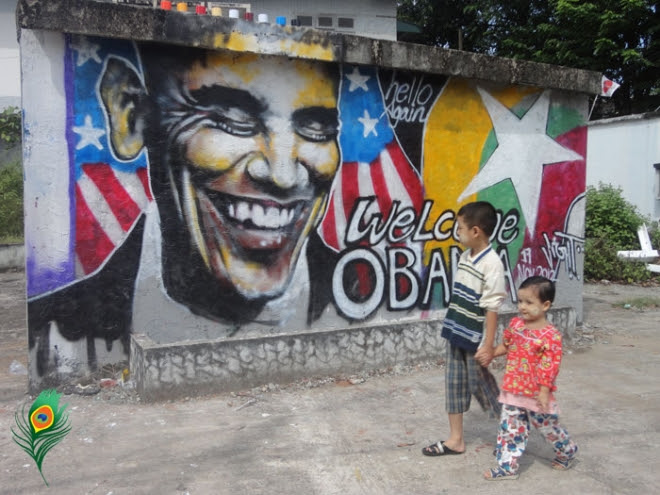US President Barack Obama, who will arrive in Nay Pyi Taw next week, needs to put pressure on President U Thein Sein’s government to hold true to government promises to respect human rights, according to John Sifton, Asia advocacy director for Human Rights Watch in a 4th November press release.

Writing about human rights in Myanmar following a recent visit, Mr Sifton says President Obama and other world leaders attending the 25th ASEAN Summit in Nay Pyi Taw need to press the Myanmar government on a slew of human rights issues, ranging from constitutional issues to the Rohingya crisis. But they also need to raise the issue of human rights abuses in the context of Myanmar’s armed conflicts.
Mr Sifton says assessments of Myanmar’s current status will likely centre on debates about the reform process, issues of constitutional reform, and whether opposition leader Daw Aung San Suu Kyi can stand for election as president under Myanmar’s flawed 2008 constitution (she cannot). The growing power of ultra-nationalist Buddhist groups will also be in the spotlight, along with the violence against ethnic Rohingyas and other Muslims and the segregation of Rohingyas into camps in Rakhine State.
From his travels, including visits to the camps of displaced people in Kachin State, Mr Sifton says Myanmar suffers another problem that rivals all others in gravity: persistent armed conflict marked by major rights abuses and violations of the laws of war. Since independence in 1948, the Myanmar army has been fighting numerous ethnic armed groups in Kachin, Kayin, Shan, Mon, and Chin States, among other places. It’s difficult to think of a country in the world beset by more separate insurgencies, he says.
Shaky bilateral ceasefires hold in several places, but the fact is that Myanmar is still a country wracked by a conflict and abuses against ordinary civilians, and for many displaced people there appears to be little prospect of returning home soon, Mr Sifton adds.



